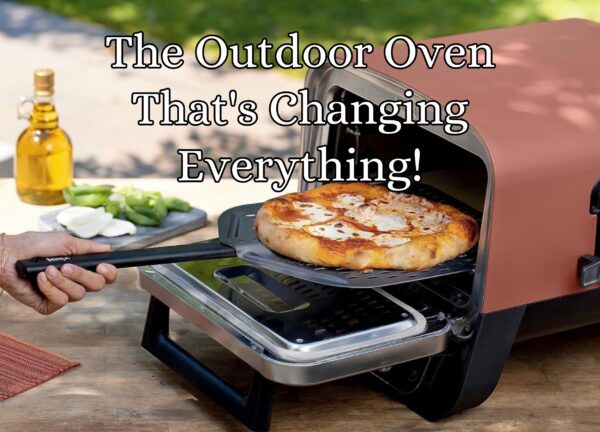Why Meal Prepping is a Game-Changer
We’ve all been there—rushing through the door after a long day, starving and with no energy to cook. The temptation to order takeout is strong. But what if you could have a home-cooked meal ready in minutes? That’s the magic of meal prepping. By dedicating a few hours one day a week to prepare your meals, you can save time, money, and make healthier choices.

The Benefits of Meal Prepping
Meal prepping isn’t just a fad; it’s a lifestyle change with numerous benefits. It helps you control portion sizes, ensures you have balanced meals, and saves you the stress of last-minute cooking. Plus, it’s budget-friendly. Buying groceries in bulk is often cheaper, and you’re less likely to splurge on eating out.
Planning is Key
Before you even step into the kitchen, planning is crucial. Decide on a menu for the week, taking into consideration the ingredients you already have. Make a shopping list and stick to it. Choose recipes that are manageable to cook and that you’ll enjoy eating.
The Grocery Run
Armed with your shopping list, head to the grocery store. Stick to the perimeter of the store where the fresh produce, meats, and dairy are usually located. Avoid the middle aisles where processed foods lurk.
The Cooking Marathon
Choose a day when you have a few hours to spare for your meal prep. Sunday is a popular choice for many. Start by washing and chopping all your veggies. Cook grains like rice or quinoa in large batches. Grill or bake proteins like chicken or tofu. Store each component in separate containers so you can mix and match meals throughout the week.
Portion and Store
Once all the cooking is done, portion out individual meals into containers. Make sure the containers are airtight to keep the food fresh. Some people prefer to store all the meals in the fridge, while others freeze a portion for later in the week.
Reheat and Enjoy
When it’s mealtime, all you have to do is reheat and enjoy. Some meals might require a quick toss in a pan or a few minutes in the oven, but the hard work is already done.
Tips for Meal Prep Success
- Start Small: If you’re new to meal prepping, start with just a few days’ worth of meals.
- Use Quality Containers: Invest in good quality airtight containers that are microwave-safe.
- Keep it Simple: Don’t try complicated recipes that require hours of cooking.
- Add Variety: Use different sauces or dressings to keep meals interesting.
By following these steps, you’ll find that meal prepping can become a simple yet impactful part of your weekly routine. It’s not just about saving time; it’s about making a commitment to healthier, stress-free living. So why not give it a try this week?
The Importance of Balance
While meal prepping, it’s essential to create balanced meals that include a good mix of protein, healthy fats, and carbohydrates. This not only keeps you full but also ensures you’re getting a range of nutrients. For example, pair grilled chicken (protein) with quinoa (carbs) and a side of steamed veggies (fiber and vitamins). Top it off with a drizzle of olive oil (healthy fats) for a well-rounded meal.
The Art of Snack Prepping
Meal prepping isn’t just for main courses; you can also prepare snacks for the week. Cut up fruits and veggies and portion them into small containers or ziplock bags. Make a batch of healthy muffins or granola bars for those times when you need a quick snack on the go. Having healthy snacks readily available will prevent you from reaching for unhealthy options.
The Role of Seasoning
A common misconception about meal prepping is that the food will be bland or repetitive. However, the right seasonings can make a world of difference. Experiment with different herbs, spices, and marinades to keep your taste buds excited. For instance, you can prepare the same grilled chicken with various marinades like BBQ, teriyaki, or lemon-herb, giving you different flavors throughout the week.
Freezing is Your Friend
If you’re worried about food going bad before you get a chance to eat it, remember that freezing is an option. Meals like soups, stews, and casseroles freeze well and can be reheated easily. Just make sure to let the food cool down to room temperature before transferring it to the freezer. Also, don’t forget to label your containers with the date to keep track of how long they’ve been frozen.
The Community Aspect
Meal prepping can be a solitary activity, but it doesn’t have to be. Involve your family in the process, or make it a social event by inviting friends over for a meal prep party. This not only makes the process more enjoyable but also gives you a chance to exchange recipes and tips.
Sustainability Matters
In the era of being eco-conscious, consider using sustainable products for your meal prep. Opt for glass containers over plastic, and use cloth bags instead of plastic bags for your grocery shopping. Every little bit helps in reducing your carbon footprint.
Meal prepping is more than a trend; it’s a lifestyle choice that can significantly impact your health and well-being. By investing a few hours each week, you’re setting yourself up for success, making it easier to maintain a balanced diet and freeing up time to focus on other important aspects of your life. So go ahead, take the plunge into the world of meal prepping and reap the rewards of a more organized, healthier lifestyle.
As an Amazon Associate we earn from qualifying purchases through some links in our articles.




